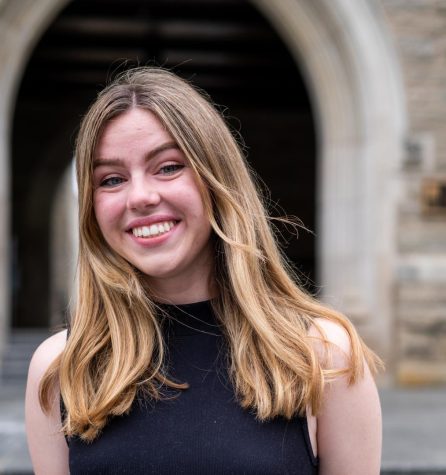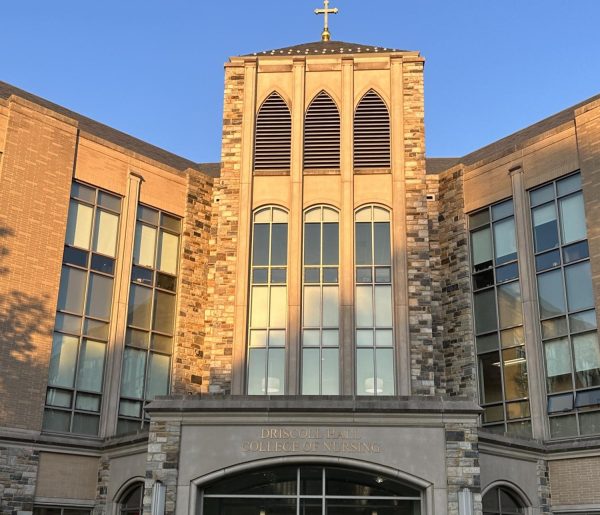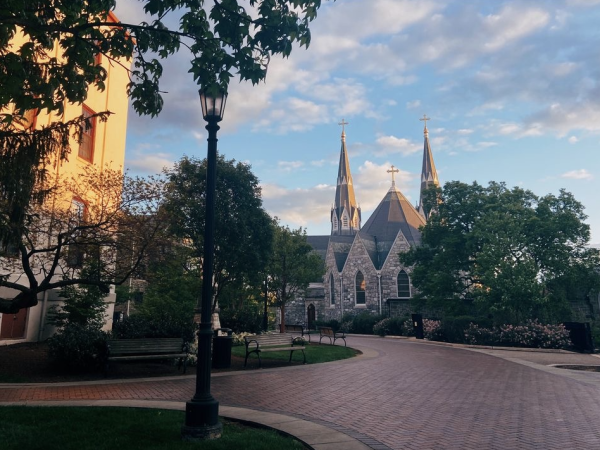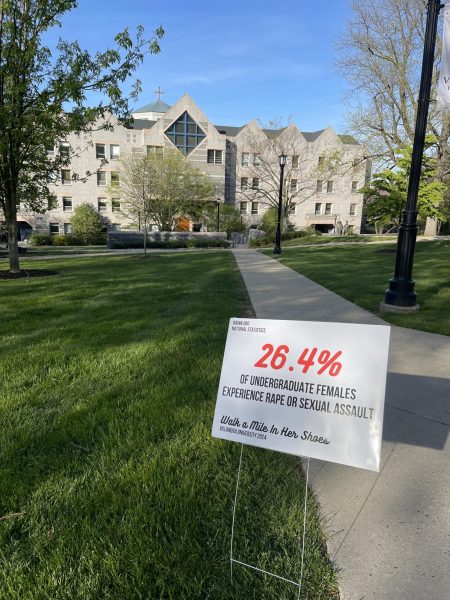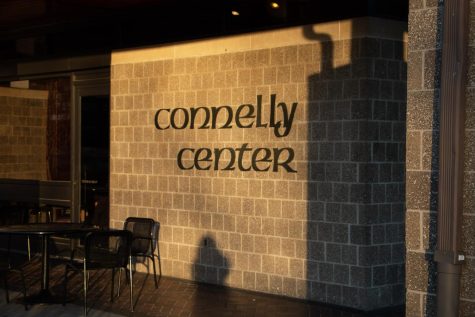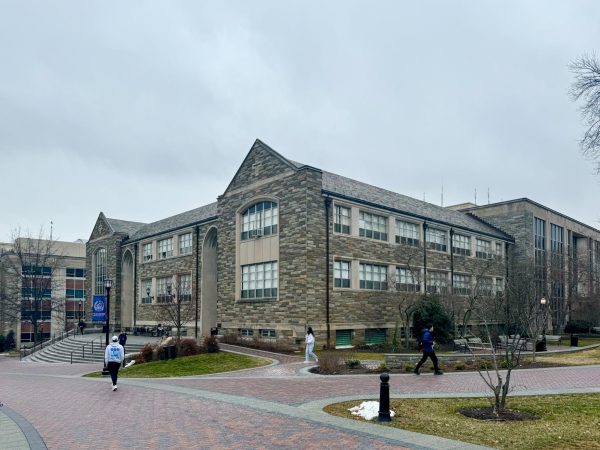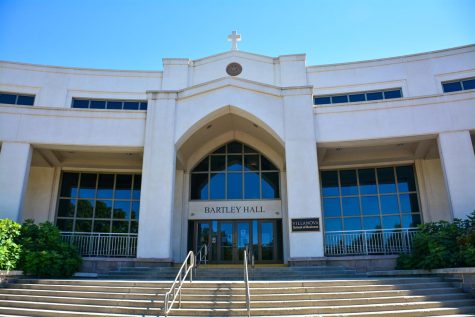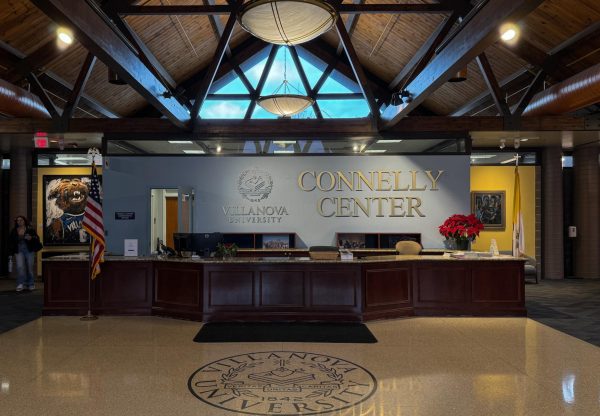University Releases Progress of Aequitas: The Presidential Task Force on Race
November 11, 2020
On Oct. 30, Aequitas, the University’s Presidential Task Force on Race, shared the results of the first few months of its work with the community. Formed this past summer, Aequitas was a response to the increased awareness of racial inequality and incidents of racism on the University’s campus, as reported by the @BlackVillanova Instagram account. The task force is led by Teresa Nance, Ph.D., the Vice President of the Office of Diversity, Equity and Inclusion (ODEI), and it comprises a number of University students, staff, faculty and alumni.
Since its inception, Aequitas has held four official meetings. The first meeting, held on July 27, served to examine the current structure of Diversity, Equity and Inclusion at the University. It also introduced Task Force members to their charges, as outlined by University President Rev. Peter M. Donohue, O.S.A., Ph.D.: work to develop a University diversity course, set goals to increase the number of Black and minoritized Villanova community members and review climate data related to the perceptions of Black and minoritized individuals on campus.
During its second meeting, Task Force members were joined by Roger Fisher, Associate Director of Intergroup Relations, and Charles Behling, a retired Psychology faculty member at the University of Michigan, for an Intergroup Dialogue Program to prepare for the complexities of discussing race.
In their third and fourth meetings, members began outlining themes and objectives for Aequitas. These now finalized goal themes and objectives are:
Academic Anti-Racist Evaluation: Encourage all departments and academic programs to undertake a systematic evaluation of the underlying assumptions of their disciplines related to race.
Diversity Course and IGR: Work with the Colleges and their Deans to offer a course required of all Villanova students and focused on a study of race and racism to enhance dialogue across varied groups and perspectives.
Diverse Community: In line with the Strategic Plan: Rooted. Restless., increase the numbers of Black and minoritized members of our community, particularly students, senior staff and faculty.
Campus Climate: Review all relevant climate data related to the perceptions of Black and minoritized students, faculty and staff regarding their lives on campus.
Race and Policing: The Aequitas Task Force, with representatives from the Office of Diversity, Equity and Inclusion (ODEI) and the Office of Strategic Planning and Institutional Effectiveness (OSPIE) and in conjunction with Public Safety and the Police Oversight Committee, will determine what data, trends or numbers are available to inform a review of policies that potentially impact matters of race and policing on campus.
Student Relations: The Student Relations Committee will work to ensure that the overall student experience aligns with each objective of the Aequitas Task Force and the Aequitas Anti-Racism Statement, which is still under development.
Communications: Conduct a racial equity audit of the University’s written and visual communications, which will culminate in recommendations on external communications, internal messaging and organizational review practices as they pertain to goals related to racial equity.
Each of the goals includes tentative deadlines, with hopes to roll out many of the new changes in Spring 2021 and Fall 2021. Among the plans students are most hopeful about is the mandated Intergroup Relations (IGR) Course, with the University working to adapt current courses to include a one-credit IGR component or make new stand-alone one-credit IGR courses. Right now, only students in the College of Liberal Arts and Sciences are mandated to take “diversity” courses. There has long been a push to expand this requirement to the Villanova School of Business, the Fitzpatrick College of Nursing and the College of Engineering, including a change.org petition, which garnered over 5,700 signatures this past summer.
“I’m optimistic that Father Peter and the University is finally listening to the voice of over 6,000 people within the student body, faculty and community after years of taking no tangible action to protect the people of color on campus,” Haseeb Waseem, the creator of the petition, said.
“We need to place pressure for them to commit to a timeline of when to expect these changes to finally be in the curriculum; it does not help that we do not have that, because metrics such as these ensure accountability,” he continued.
He concluded by praising student activists on campus.
“I will never put any success of antiracism on the shoulders of the administration but rather on the strenuous effort from student activism on campus forcing the administration to act,” he said.
Nance also recognized the importance of Villanovans in shaping a more equitable community.
“Greater community involvement is imperative toward creating a more just and equitable Villanova,” she said.

